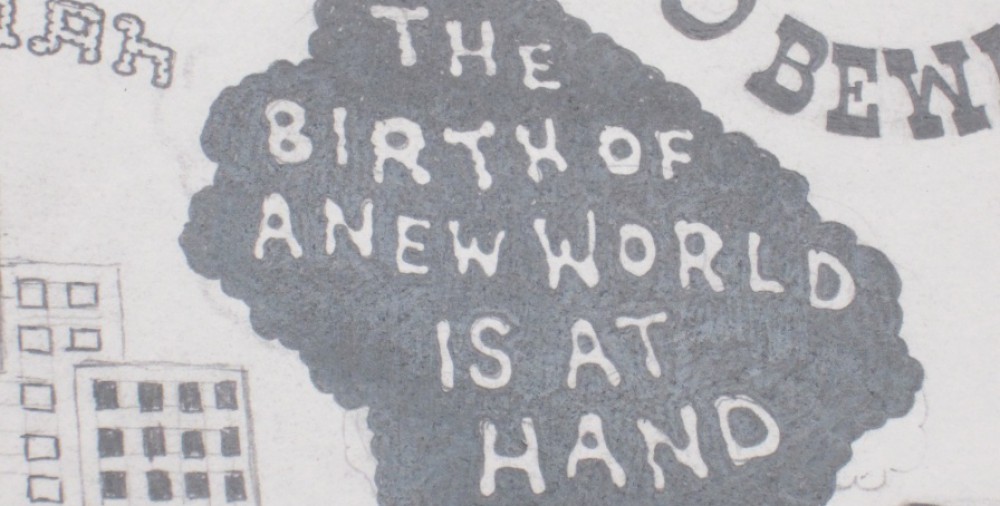After this weeks reading, I am seeing many similarities between Yevgeny Zamyatin’s We and Aldous Huxley’s Brave New World. The first similarity I noticed was how, both societies, One State and the World State were both organized with rules that should be followed. Another thing that is similar is that in One State, when you want to do something that is not formally allowed, you get a pink slip, something that asks permission to do something. This reminded me of the World State because, everything was controlled and there weren’t many things the people could do besides being promiscuous and participating in orgies. Each society also values something, in the World State soma is valued and in One State math plays a major role in society and in D-503’s life. I see that they are similar in these ways.
My first impression of D-503 was that he is an outsider. He has negative feelings on participating in society. “and through the glass walls of my algebraic world, again that eyelash- something unpleasant that I must do today” (pg 34) This shows that D-503 doesn’t really want to be apart of whatever is going on. Another way that shows D-503 is different is that “I hid behind my newspaper- it seemed to me that everyone was staring at me” (pg 35) Everyday he writes in his diary, which is what We is based off of. He meets I-330 and he follows her around and she even gets him to miss work. I think that I-330 is going to be a bad influence on D-503. So far I’m not really seeing any problems with D-503. Just that he dislikes doing anything other than math.
We are also introduced to I-330. First off, I thought that I-330 is going to be an important character because of how she acts. She can be seen as the rebel so far. She doesn’t follow all the rules she’s supposed to. She smokes and drinks alcohol which is not allowed in One State. I-330 is also very sneaky. I-330 says to D-503 “to be original is to be in some way distinct from others. Hence, to be original is to violate equality” (pg 28) This shows that I-330 doesn’t really care about the rules of One State and that she is just going to do whatever she wants.
I am confused on what these “names” or codes mean. I-330 ? O-90 ? D-503? R-13 ? I know that they are names, of characters in We but what do they stand for?
Another question I have is, what’s D-503’s deal with radical negative one? “This irrational number had grown into me like something foreign, alien, terrifying. It devoured me- it was impossible to conceive, to render harmless, because it was outside ratio” (pg 39) I think D-503 dislikes this number maybe because since its an irrational number, it keeps going on and on and its not a normal number. It’s also “unsettled” so this made me think that D-503 likes having everything set the way he feels comfortable with and that he doesn’t like knowing there’s the unknown that exists. Or maybe he dislikes this because its a math equation that he can’t figure out?



